Have you ever wondered why your dog sleeps so much? Sure, the KUDDE dog bed is a super cozy and healthy place for dogs to sleep, which even Martin Rütter swears by. Nevertheless, it can sometimes be surprising how much time dogs spend sleeping. Find out in this article:
- why dogs sleep so much,
- how their sleeping habits developed,
- what you can do to make their sleep really restful,
- how and when best to wake a sleeping dog.
Why do dogs sleep so much? The essentials at a glance
- Dogs are real sleepyheads and need between 12 and 14 hours of sleep a day, puppies and older dogs sometimes even up to 20 hours! But don't worry, they recover, heal minor injuries and consolidate memories.
- Dogs sleep more often than humans in small intervals - they have inherited this from their ancestors, the wild wolves. However, just like humans, they go through different sleep phases.
- In lighter sleep phases, dogs are best woken gently - in deep sleep, it is better to give them their well-earned rest.
Sleep needs in dogs - what is normal?
Dogs spend a large part of their lives sleeping. On average, they sleep soundly for 12 to 14 hours a day, with puppies and older dogs needing even more sleep. In addition, there is a lot of dozing and twilight sleep, which is also important for our pets on four paws. So 18 hours of "lying around doing nothing" is completely normal for an adult dog! But why do dogs actually sleep so much?
To understand this, we must first take a look at their ancestors. Dogs are descended from wolves, who in the wild usually sleep in short bursts to recharge their energy reserves and stay alert. This type of sleep pattern has been preserved in dogs, and they therefore often sleep in shorter intervals. Thus, their deeper sleep is spread over approximately 8 hours during the night - and 4-6 hours at intervals throughout the day. In addition, there is a similar amount of time during which they doze.
The different phases of sleep
Similar to humans, dogs go through different sleep phases. These can be divided into two main phases:
- REM sleep (Rapid Eye Movement) and
- deep sleep
- Twilight sleep or "dozing"
REM sleep
During REM sleep, dogs dream and process, for example, the smell of the great "mark" they got on a walk, the pats they received or the visit from the nasty letter carrier they barked at again. During this phase, they are often restless and move their paws or twitch. REM sleep is important for a dog's mental health and ability to learn.
Deep sleep
Deep sleep is a well-deserved break for the dog to recover from the daily exertions, e.g. reluctantly listening to its master. During this phase, the dog is deeply relaxed and its muscles are completely relaxed. Deep sleep is crucial for the dog's physical recovery and growth.
Twilight sleep/dozing
You're probably familiar with this: your furry friend sometimes lies there with his eyes closed, but his ears still react to every sound. In this case, your dog is relaxing rather than sleeping. His brain is still active. This form of dozing or twilight sleep is also common when cuddling on the sofa, for example. Dogs spend almost 50% of their daily resting time in this state!
Factors that influence the need for sleep
Various factors can influence a dog's need for sleep. Here are some important factors:
Age
As with humans, dogs' sleep requirements change over the course of their lives. Puppies and older dogs tend to sleep more than adult dogs. Puppies like to get up at night because they have to, while our older companions wake up because their bones hurt, just like us later on.
Size
The size of the dog can also influence the need for sleep. As you know, everything is a little faster with smaller dogs. They tend to have a higher metabolism and need to burn more energy to stay warm. They therefore need more sleep than slightly larger dogs. Very large dogs, on the other hand, age faster and, like St. Bernards, have to carry a lot of weight with their bodies. This is why they often need more sleep to recover.
Activity level
Dogs that spend a lot of time working hard, such as working dogs or dogs that do a lot of training, may need more sleep than dogs that tend to take it easy.
Race
Some breeds are known to be more energetic than others and may need more sleep to recover. For example, Border Collies or Australian Shepherds need more sleep than Bulldogs or Poodles. You can find out more about this in the FAQs at the end of this article.
Sleeping situation and berth
Like us humans, dogs sleep better when the environment is quiet at bedtime - and the sleeping area is also comfortable. Your dog's sleeping area should therefore be quiet, comfortable and free from disturbances. Your faithful companion should lie ergonomically and be able to rest their head. This is exactly why we at SABRO have developed the KUDDE dog bed - with a special focus on your dog's health. In the "KUDDE World" collection, you will find all KUDDE dog bed variants and matching accessories to provide your dog with an all-round healthy and comfortable sleeping environment. Something that also prompts dog professional Martin Rütter to say: "This is how your dog sleeps naturally and healthily.
Advantages of a good night's sleep
Dogs don't just sleep because they're tired - sleep actually has many health benefits. Here are some of the most important:
Physical recovery
Dogs need sleep to recover physically. During sleep, the cells are repaired and the immune system is strengthened. If your dog doesn't get enough sleep, it can make him ill.
Mental health
Sleep is also important for the mental health of dogs. Dogs that get enough sleep tend to be more alert and have a better mood than dogs that don't get enough sleep.
Bonus tip: How to wake a dog properly
If it is absolutely necessary to wake a dog, it should be done gently and carefully. Here are some tips:
- Avoid loud noises or sudden movements.
- Speak to the dog in a calm voice and approach it slowly.
- Gently stroke your furry friend's fur and speak softly to him - that way he knows directly who is waking him up and that everything is okay.
Frequently asked questions about dog sleep
How much sleep does my dog need?
Dogs' sleep requirements vary depending on their age, size and state of health. In general, dogs need around 12 to 14 hours of sleep per day.
Should I disturb my dog while it is sleeping?
No, it is important that your dog remains undisturbed during sleep in order to fully recover.
How can I help my dog with sleep disorders?
If your dog suffers from sleep disorders, you should find out the cause


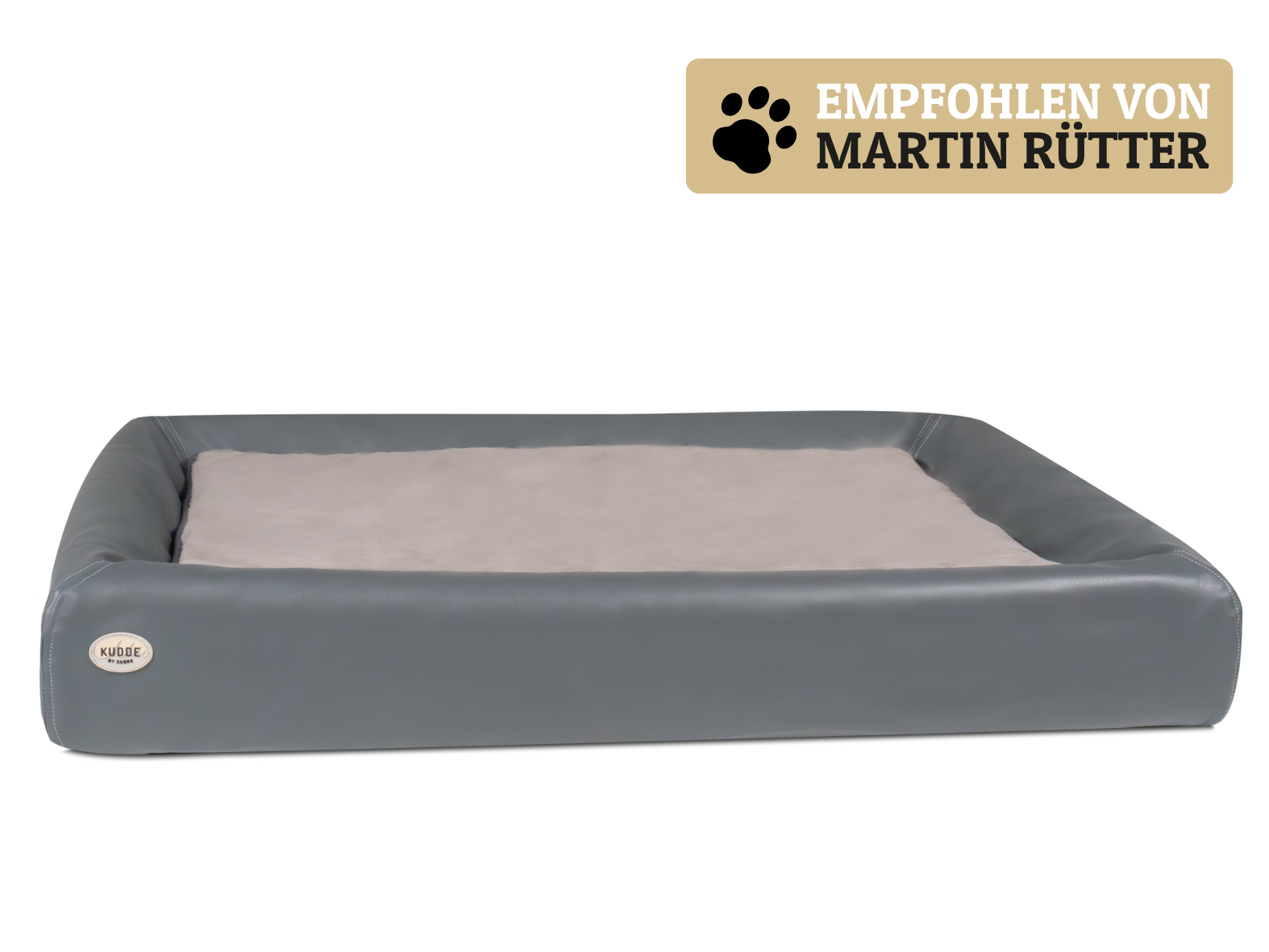
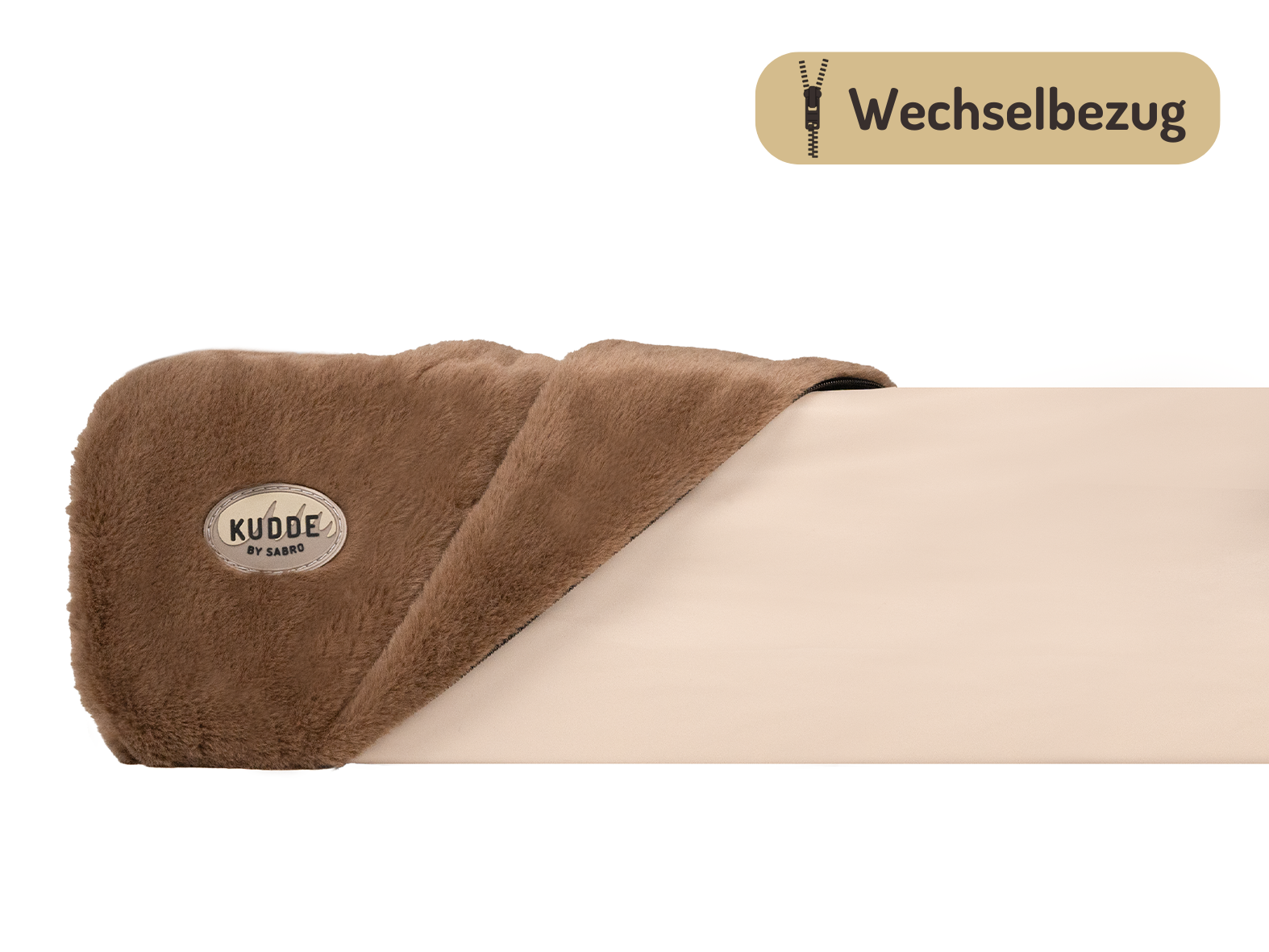
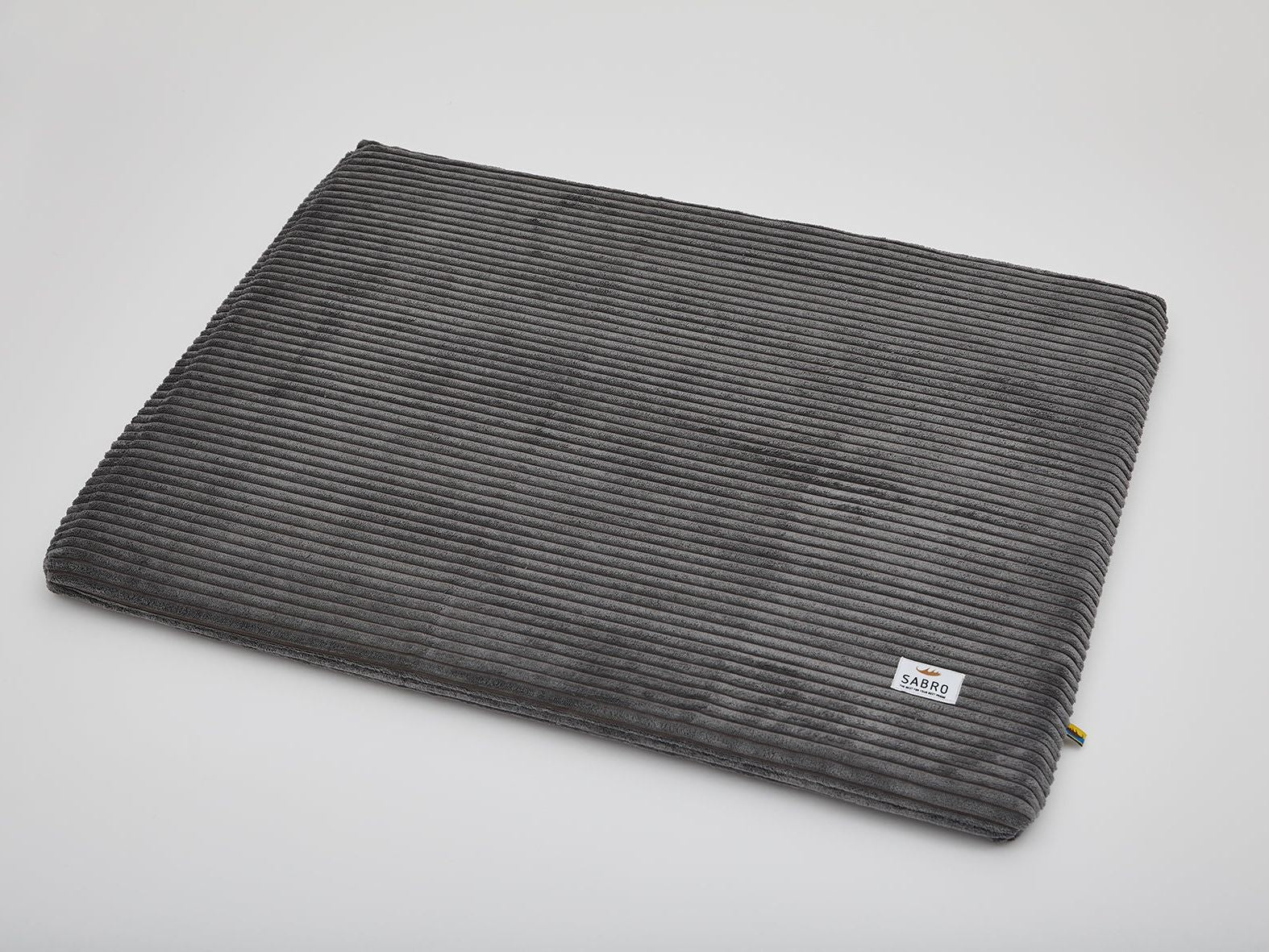
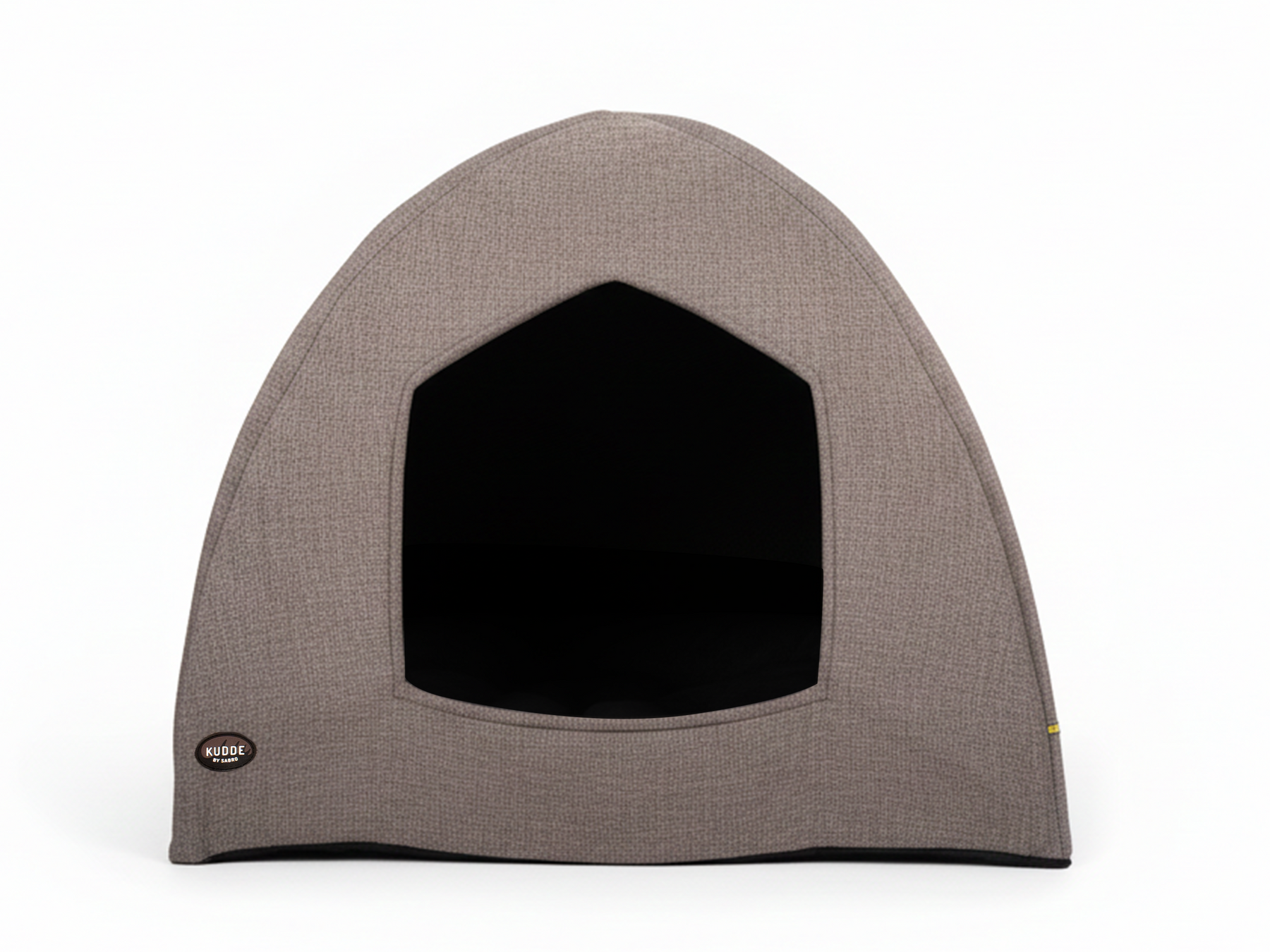
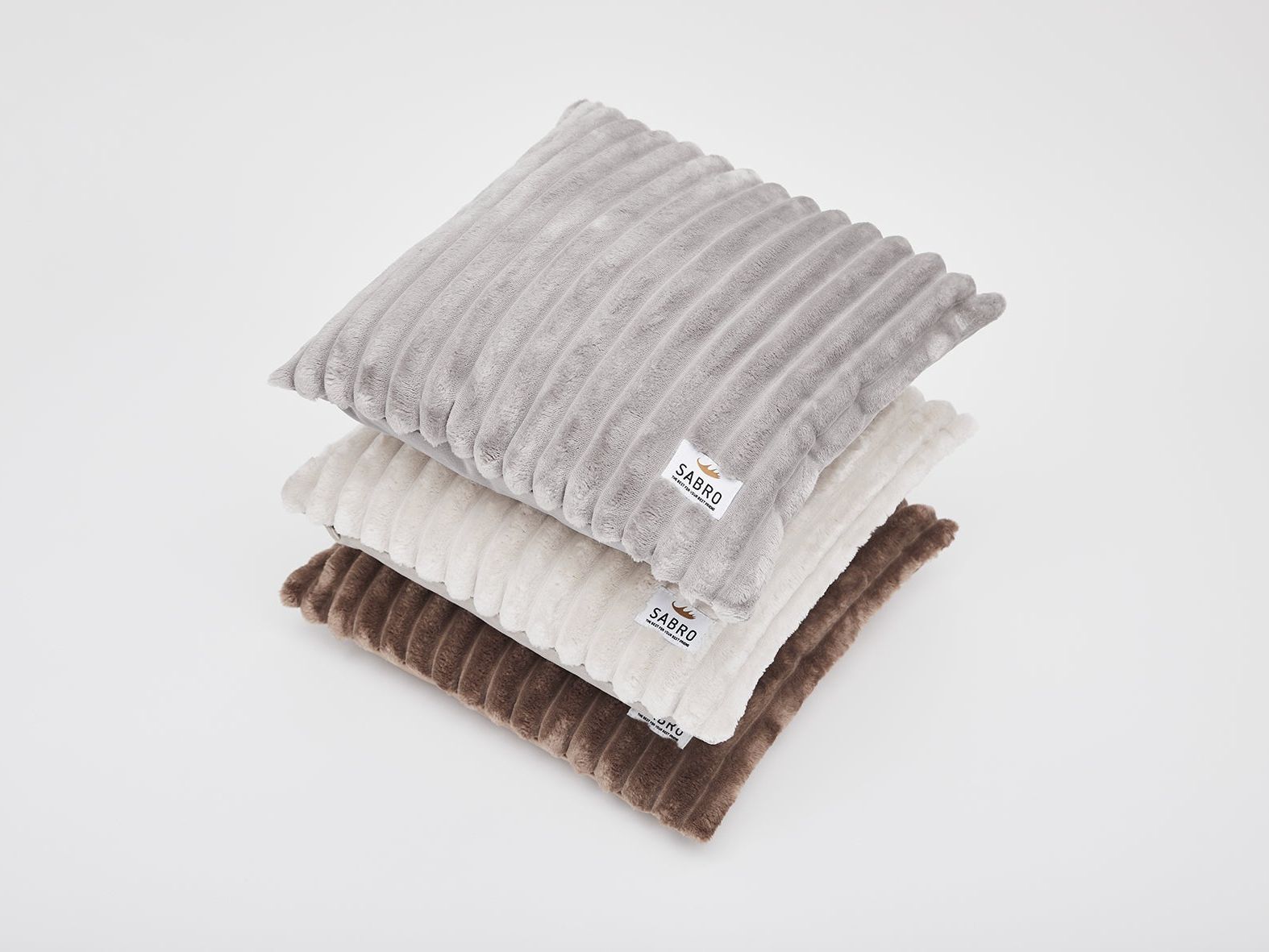
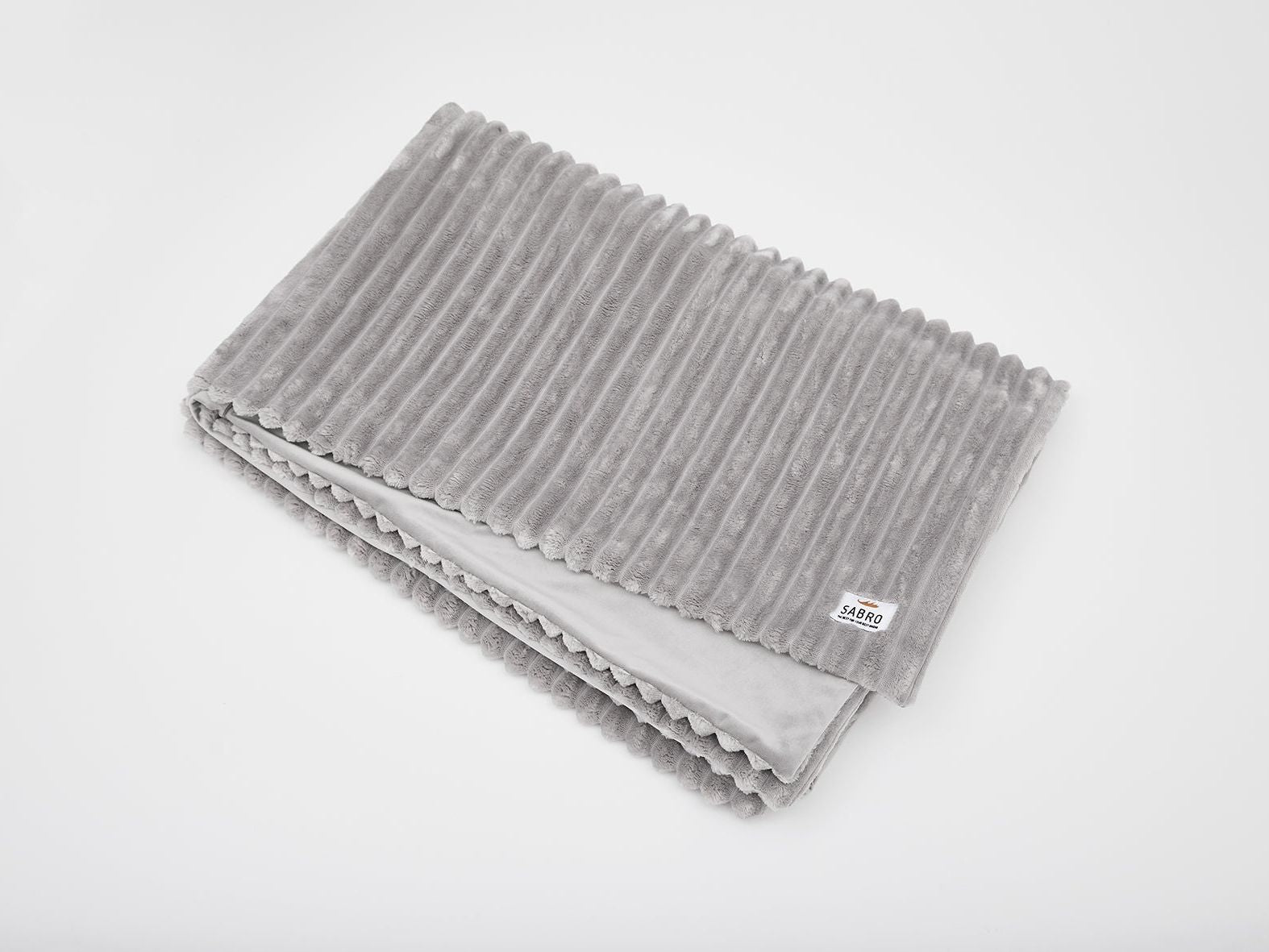
1 comment
Sophie
Thank you so much for this super golden post! It helps to understand my older Jack Russell better and I will pay even more attention to his needs, especially his night-time sleep. And of course order KUDDEL 😅
Thank you so much for this super golden post! It helps to understand my older Jack Russell better and I will pay even more attention to his needs, especially his night-time sleep. And of course order KUDDEL 😅